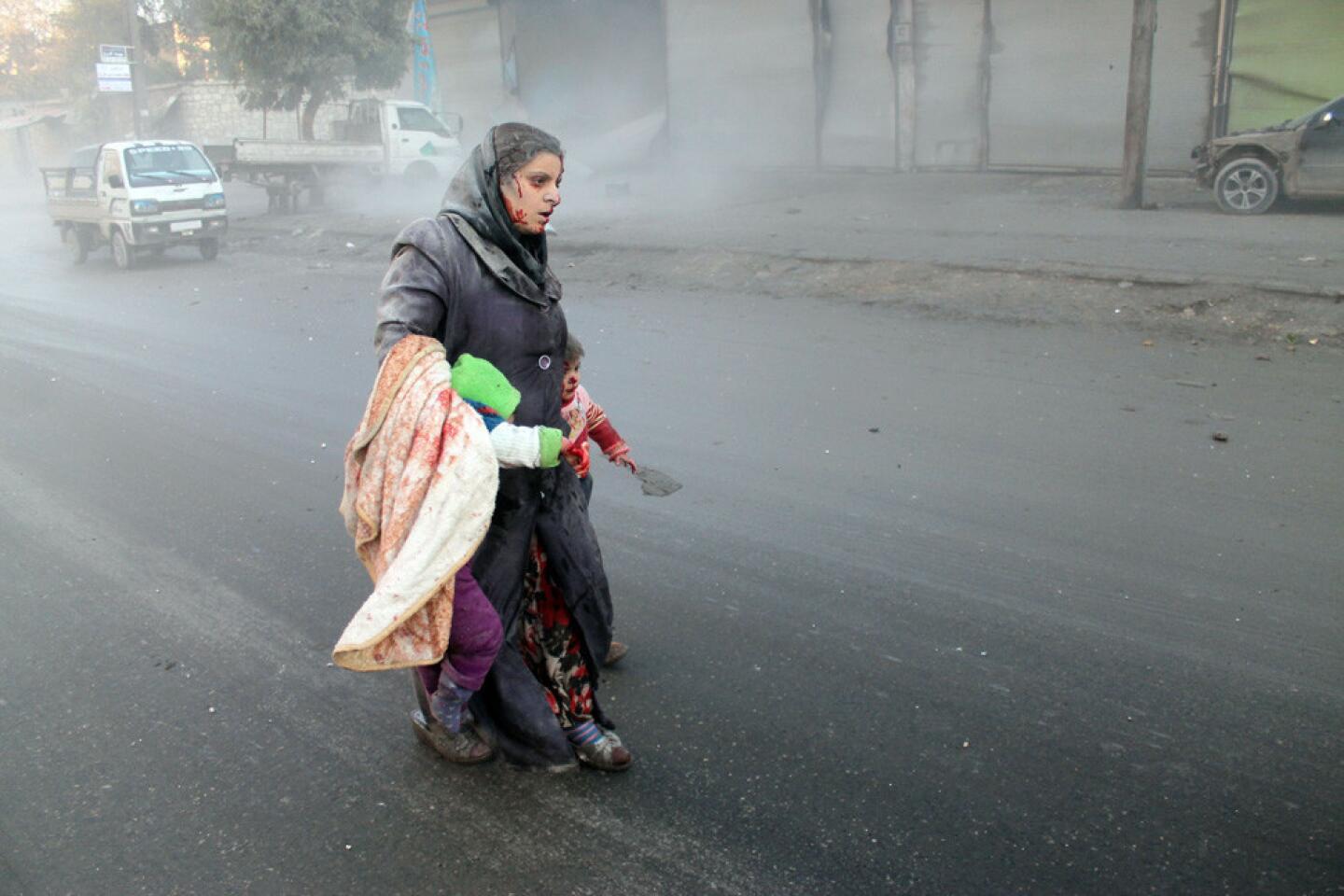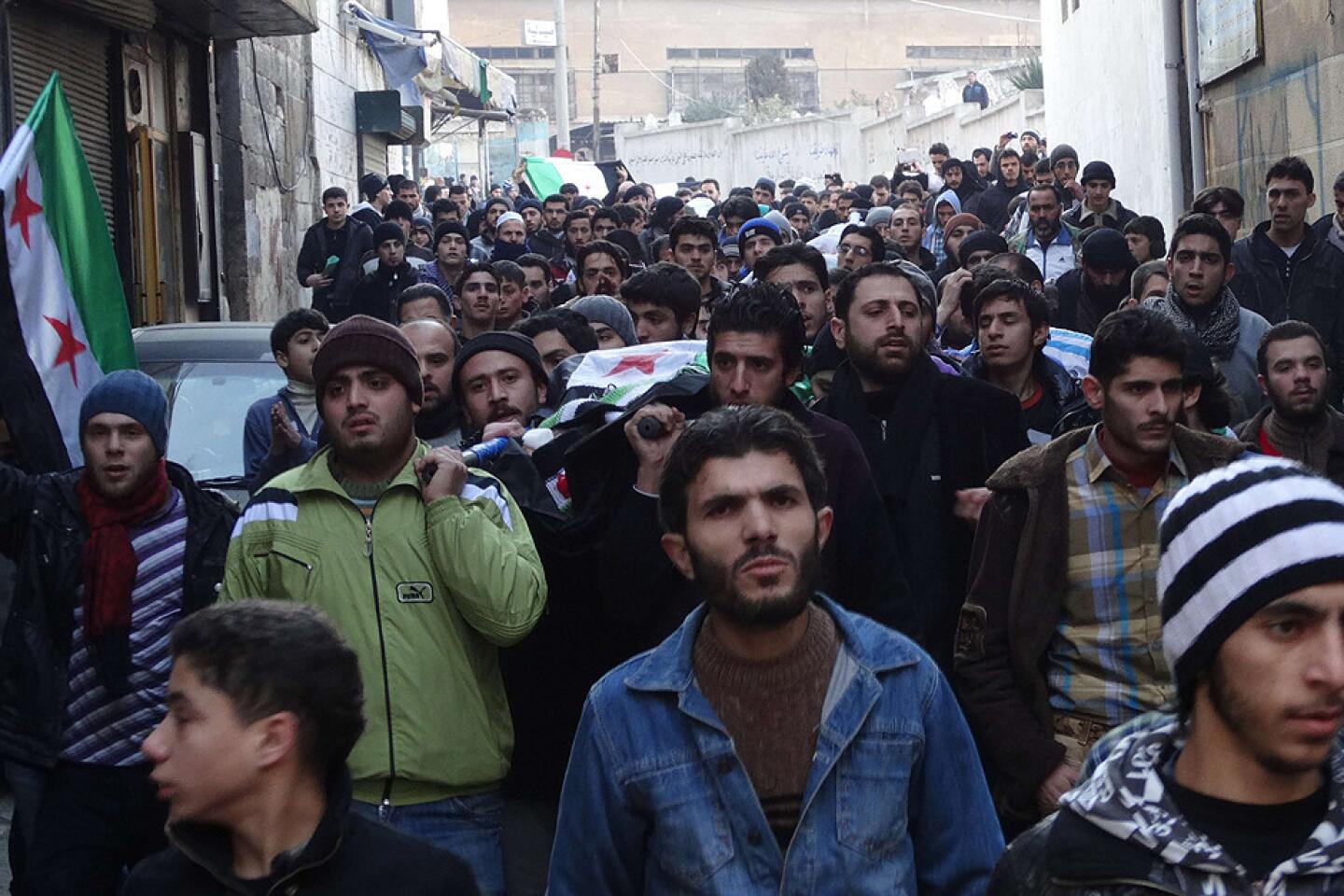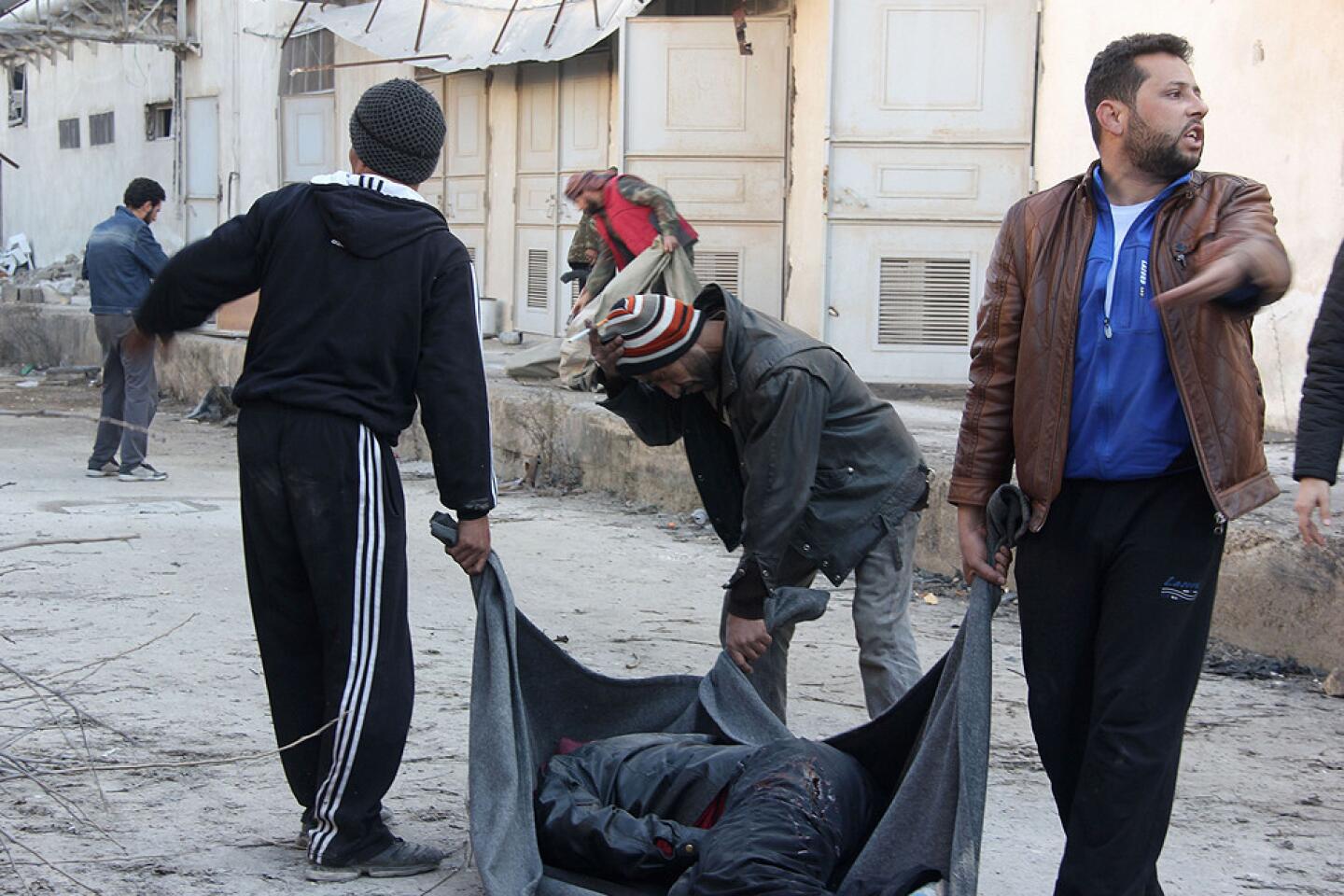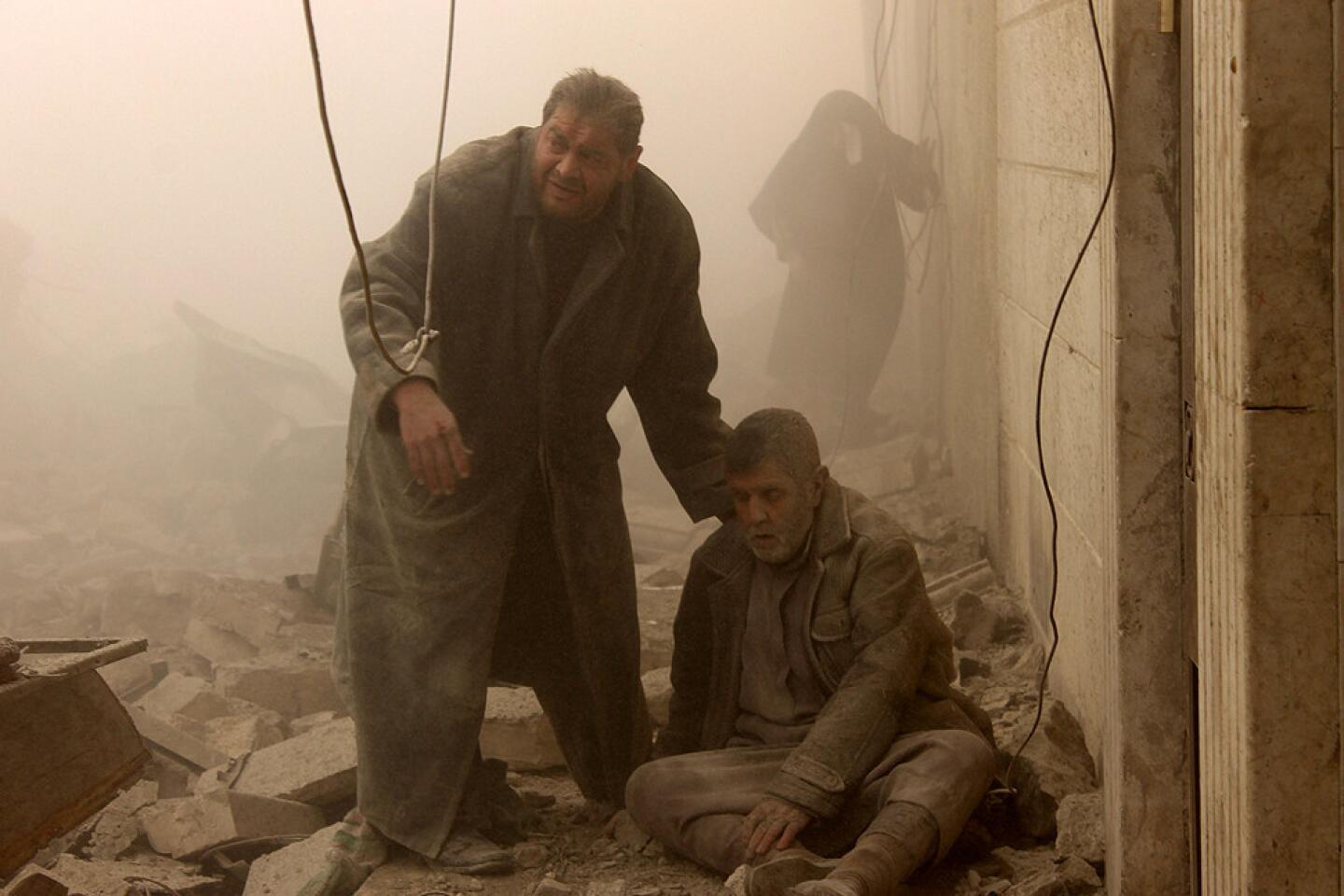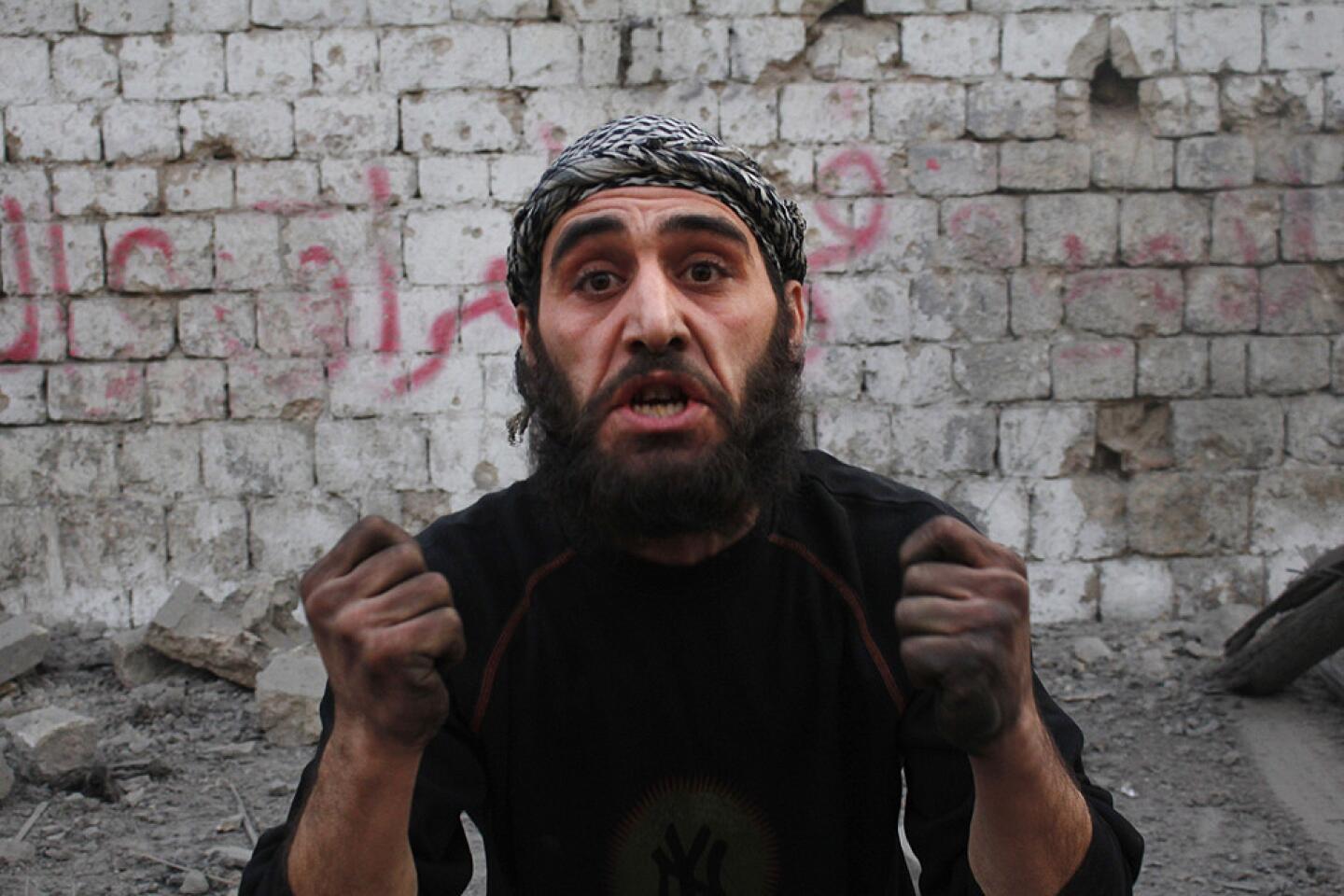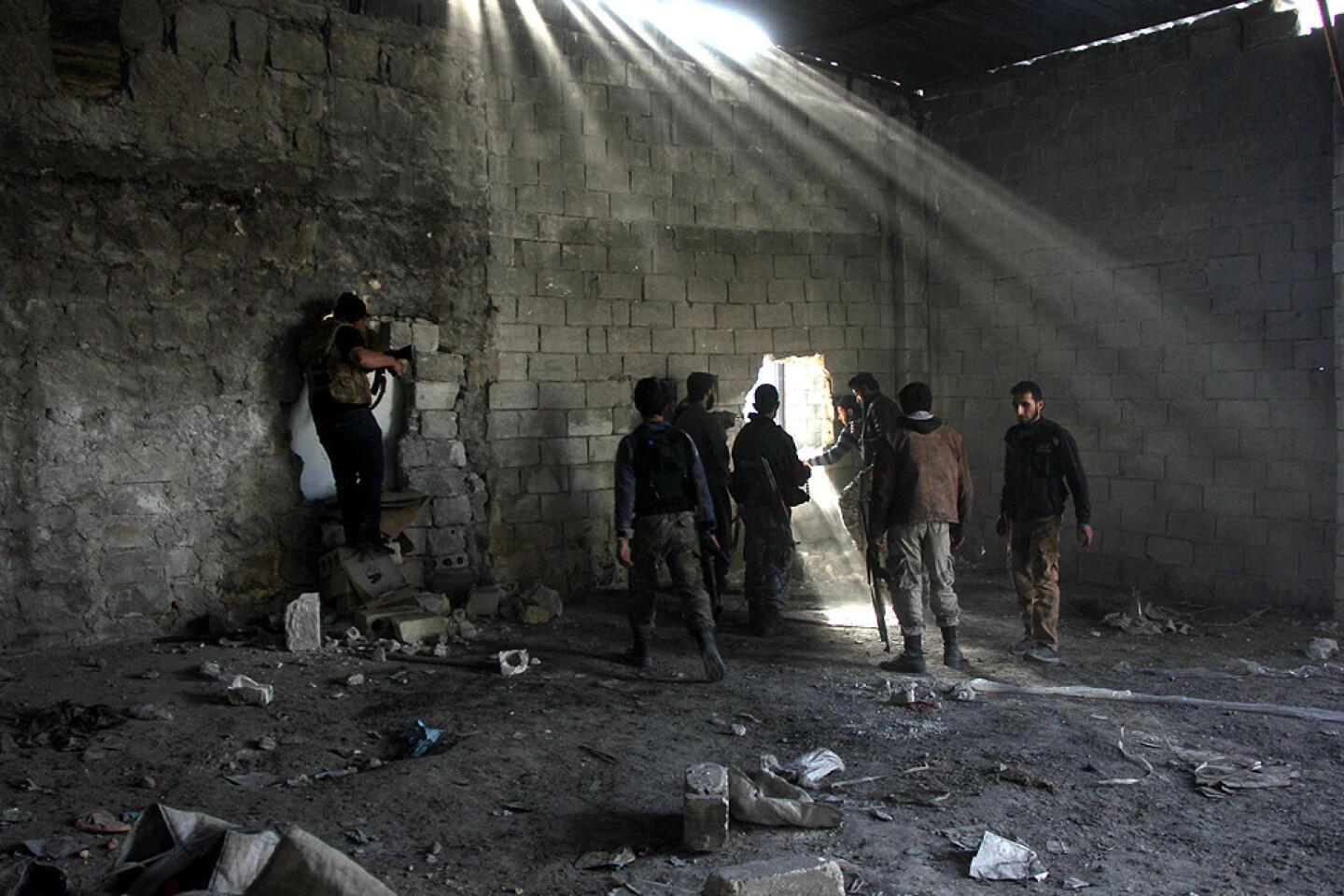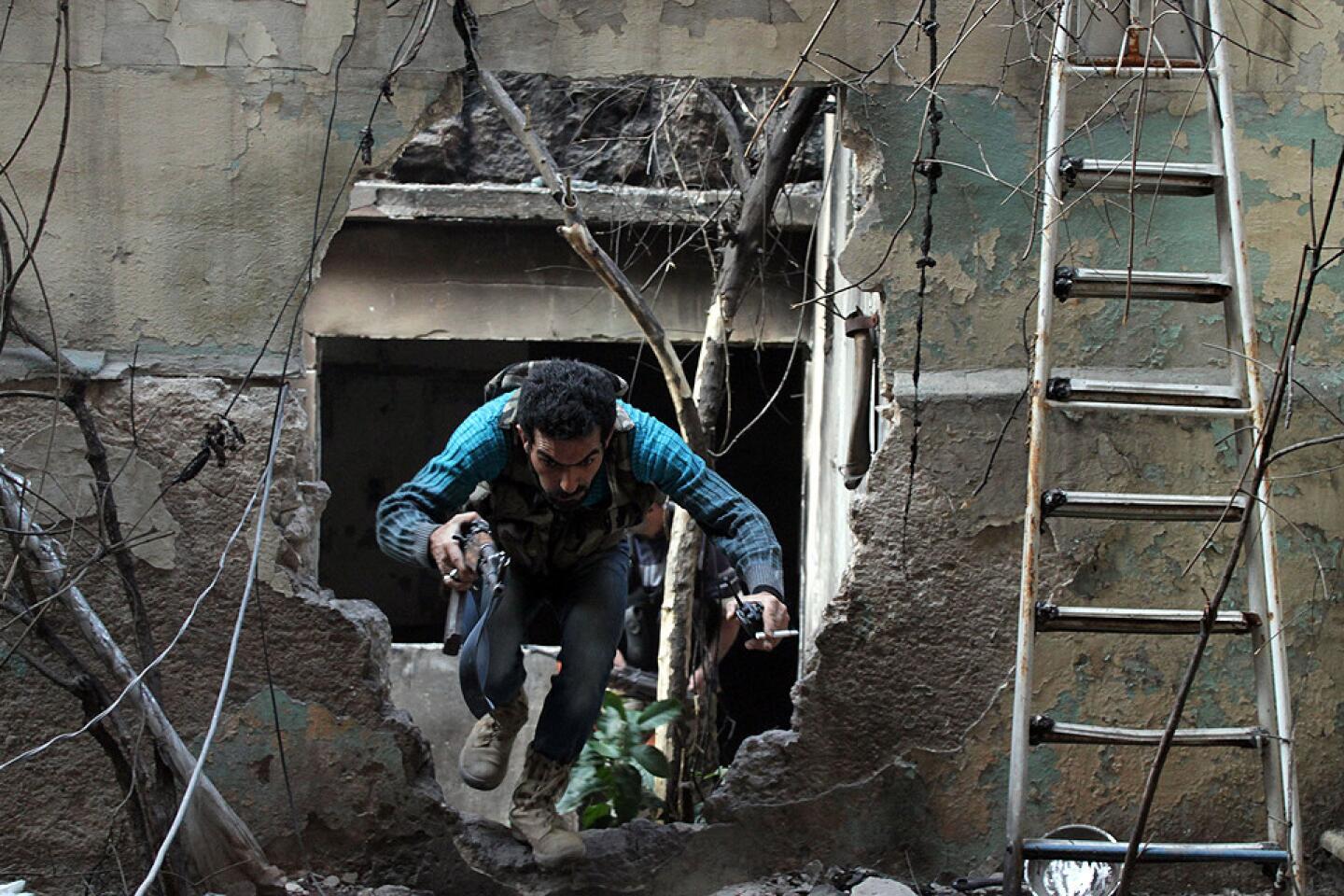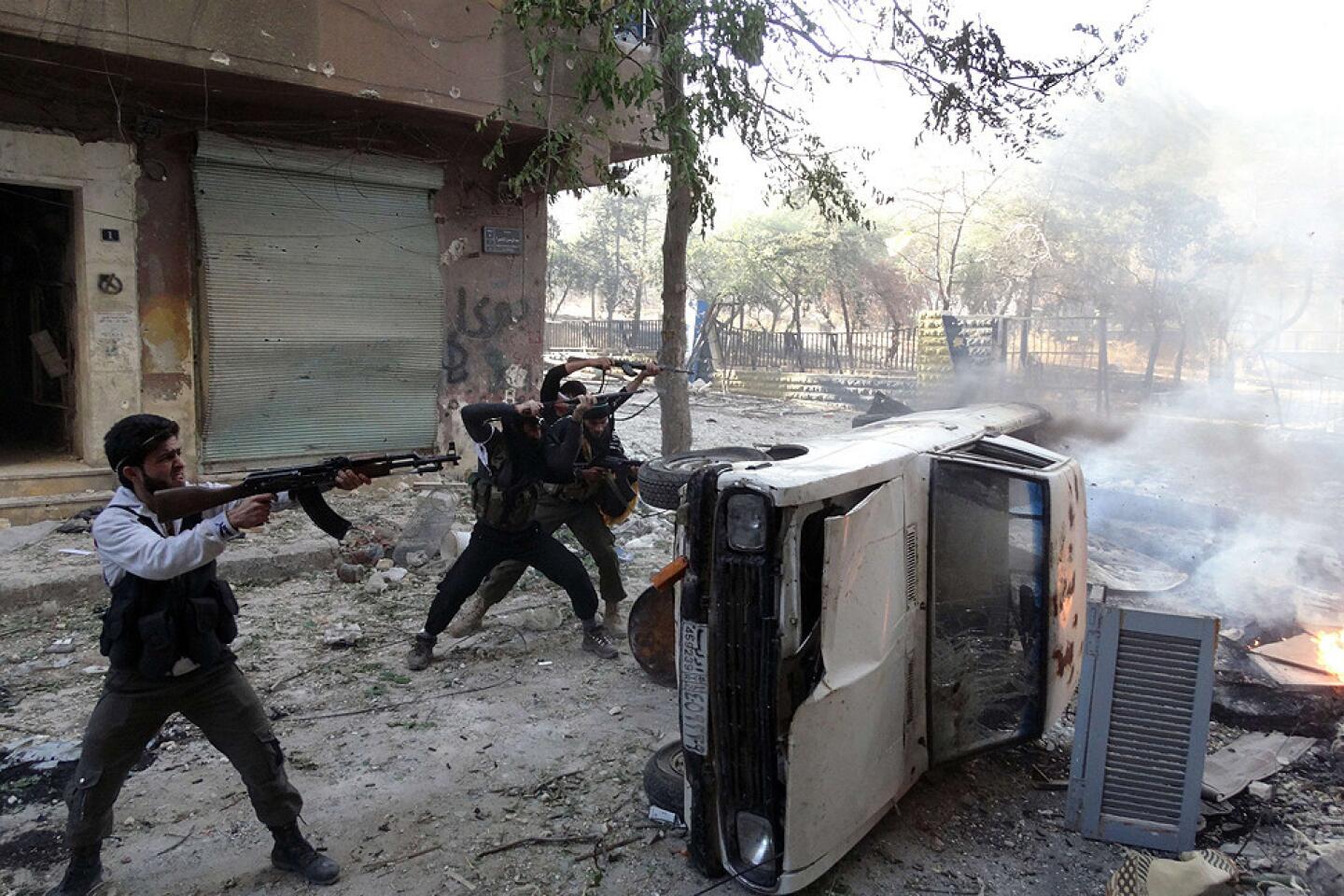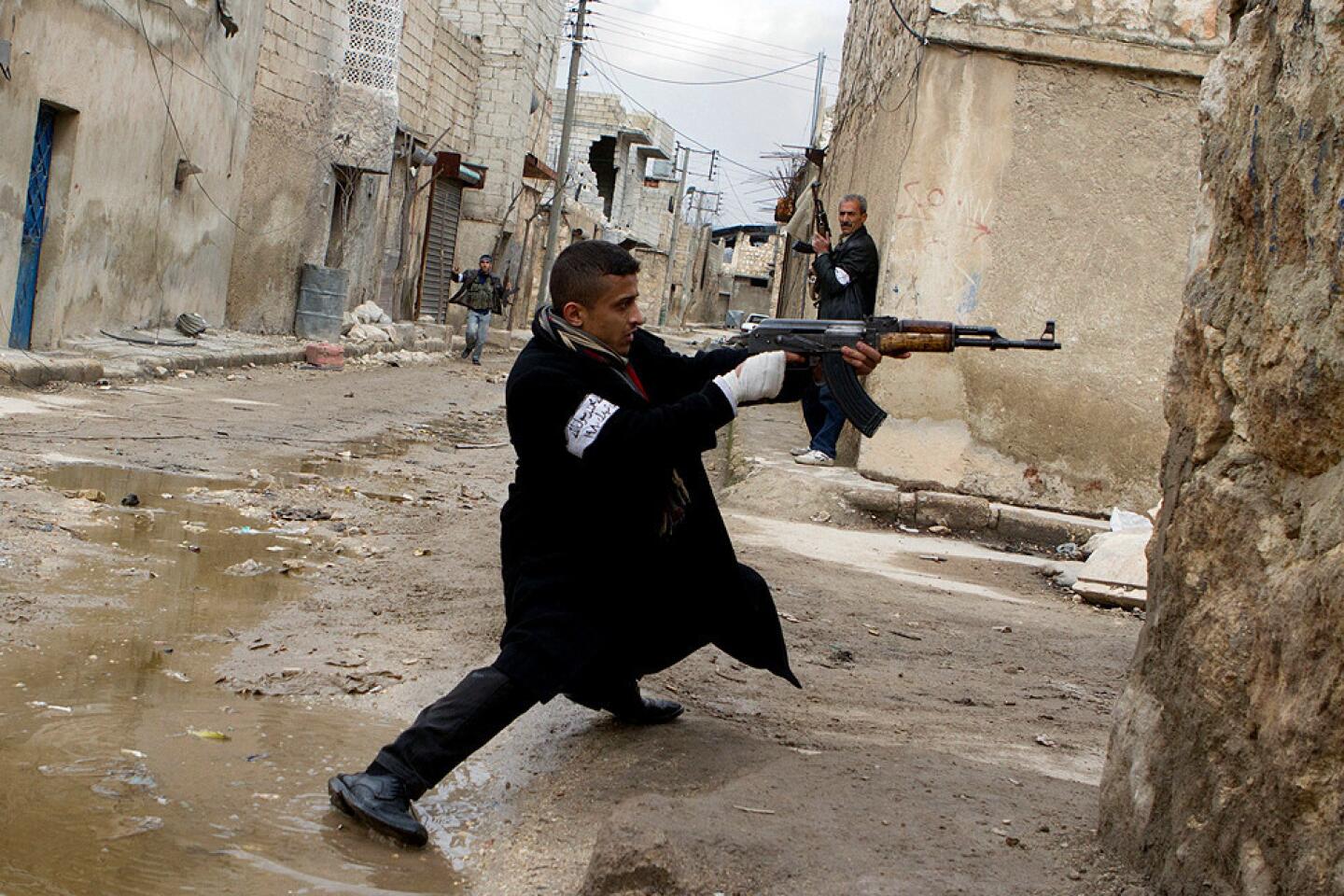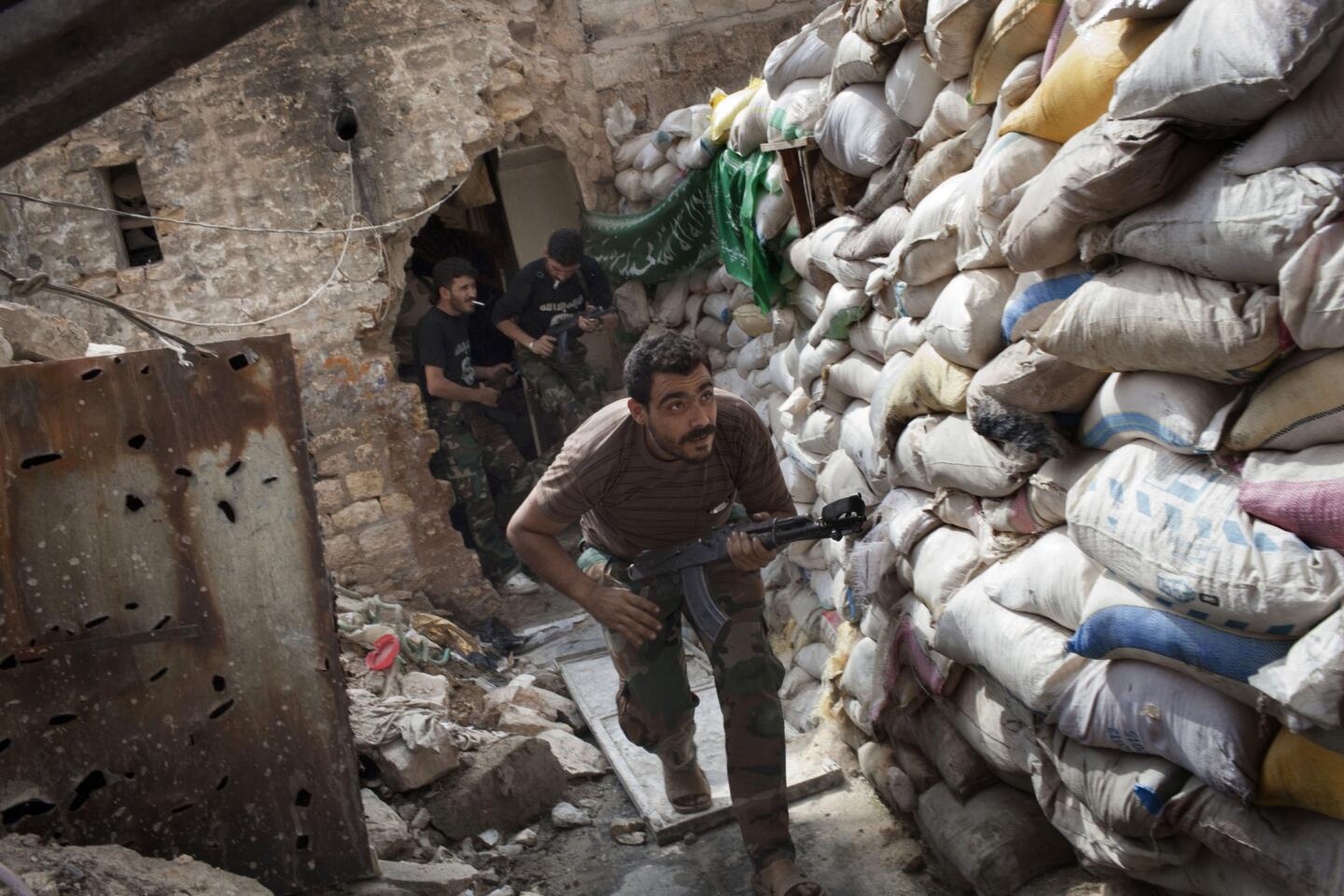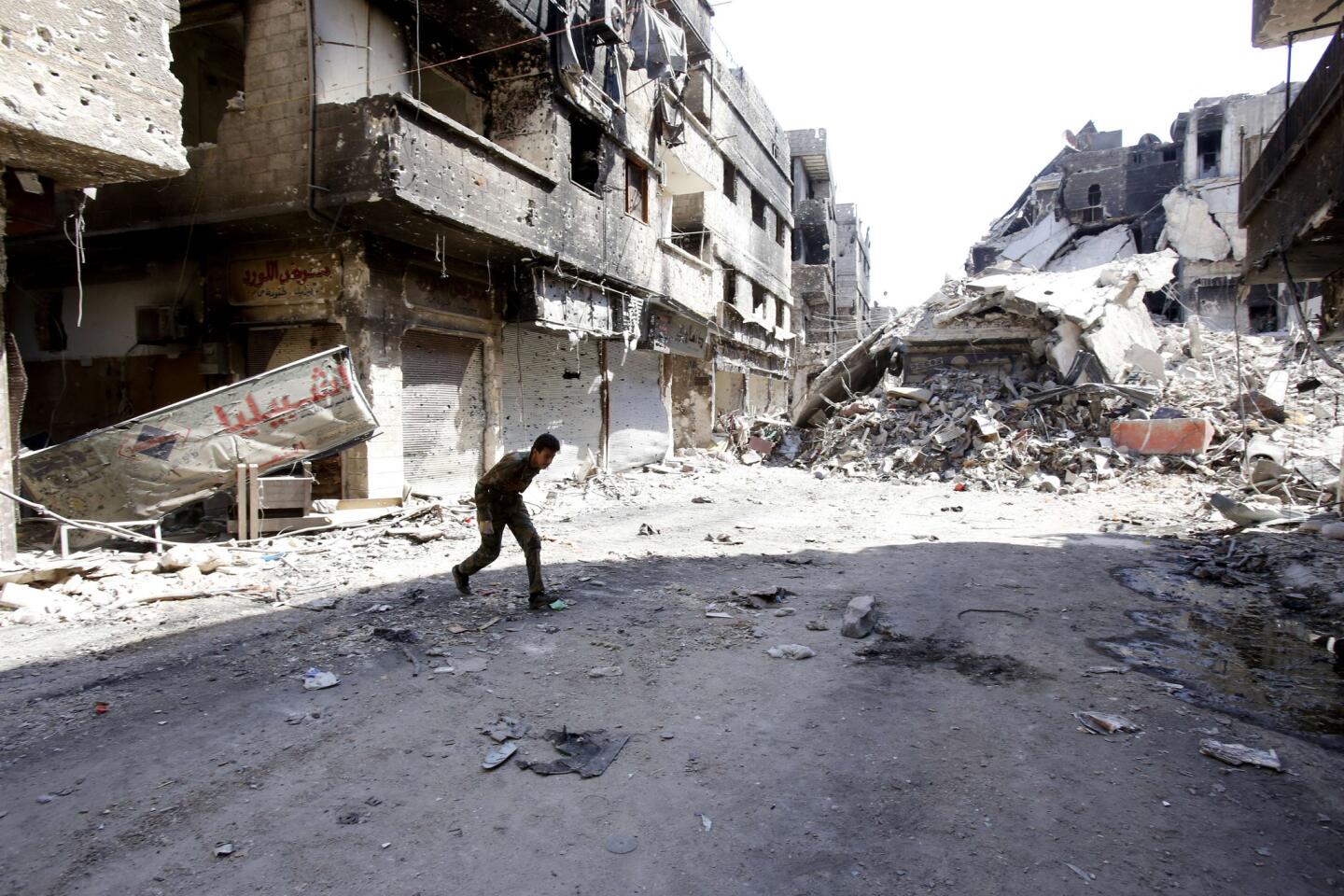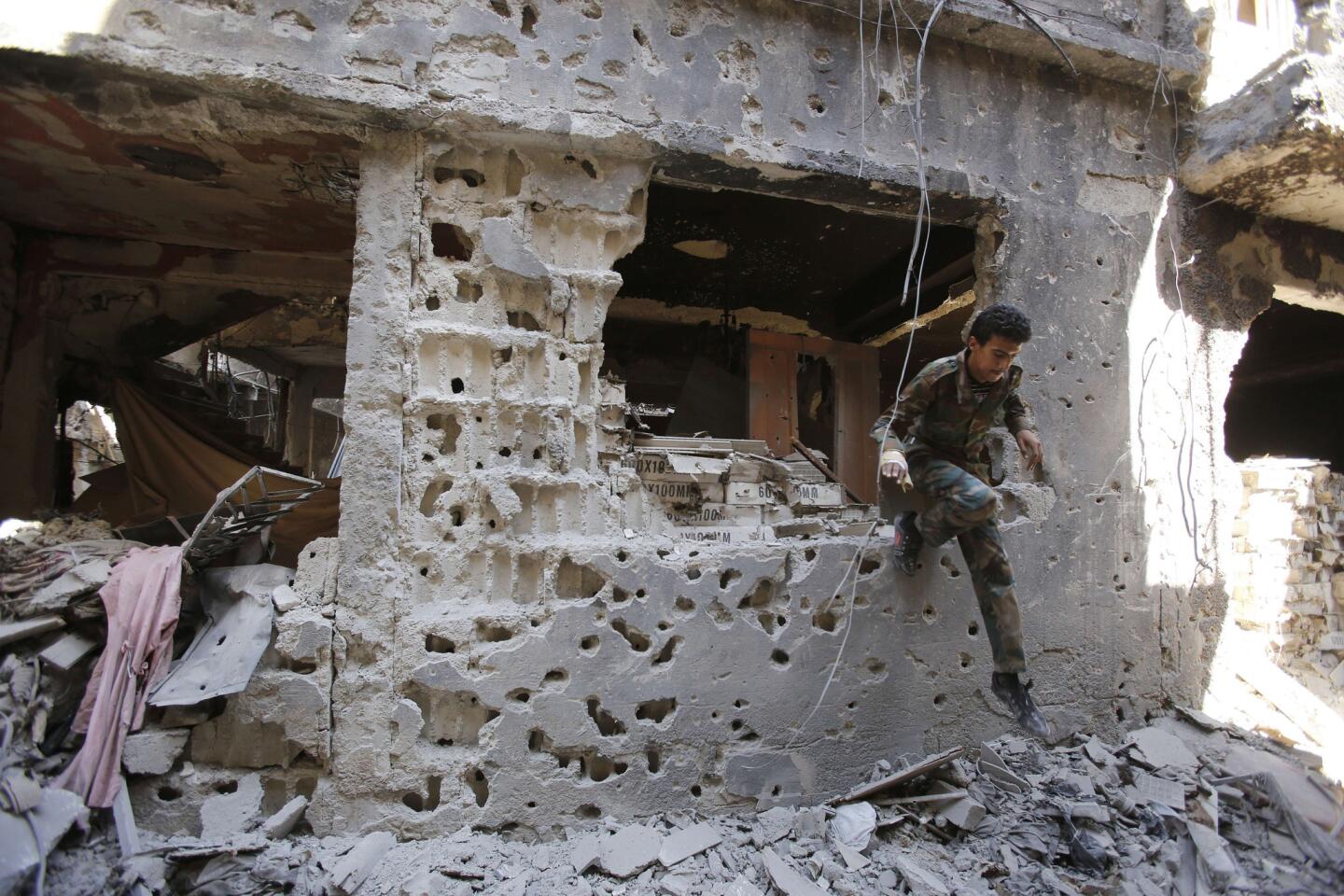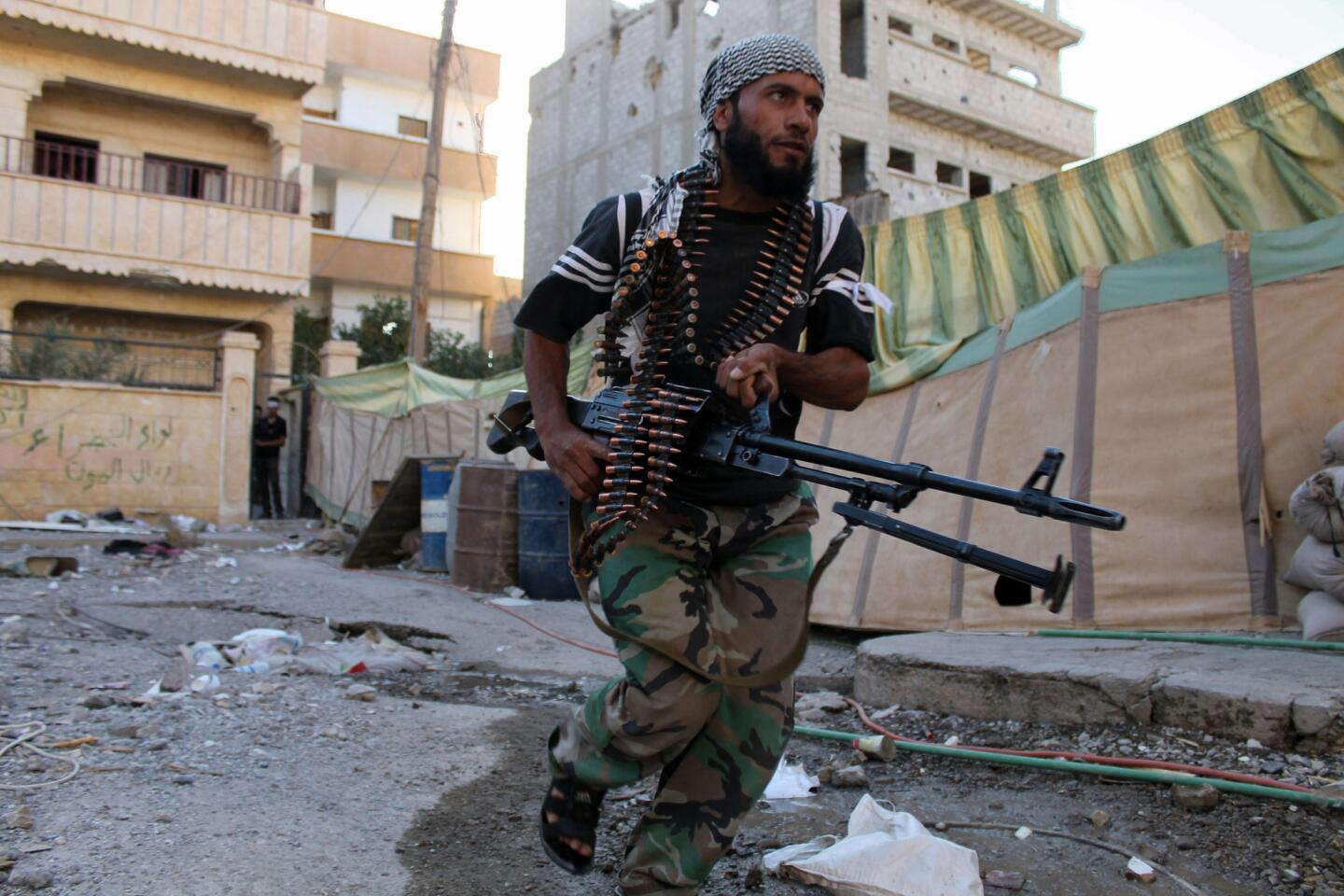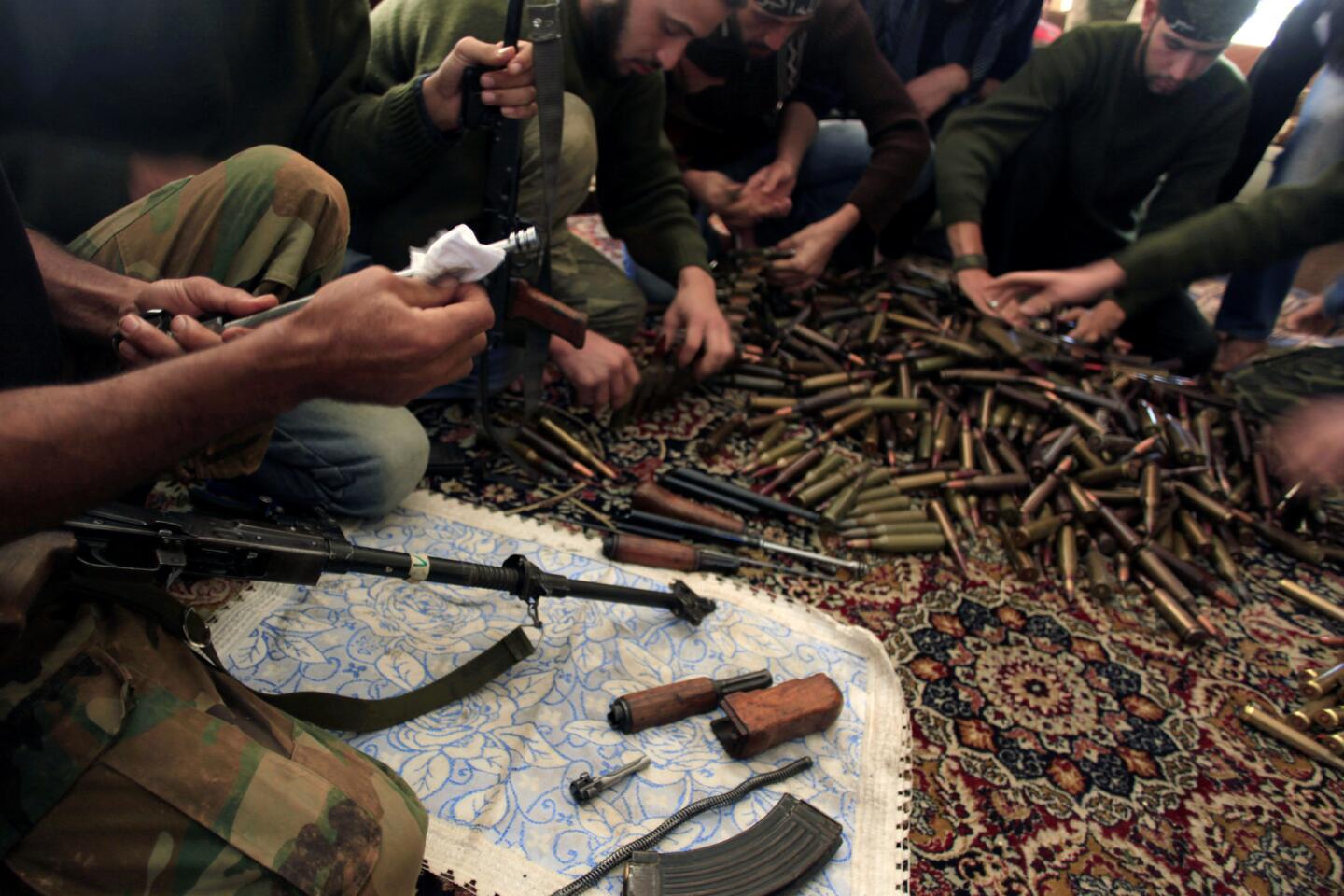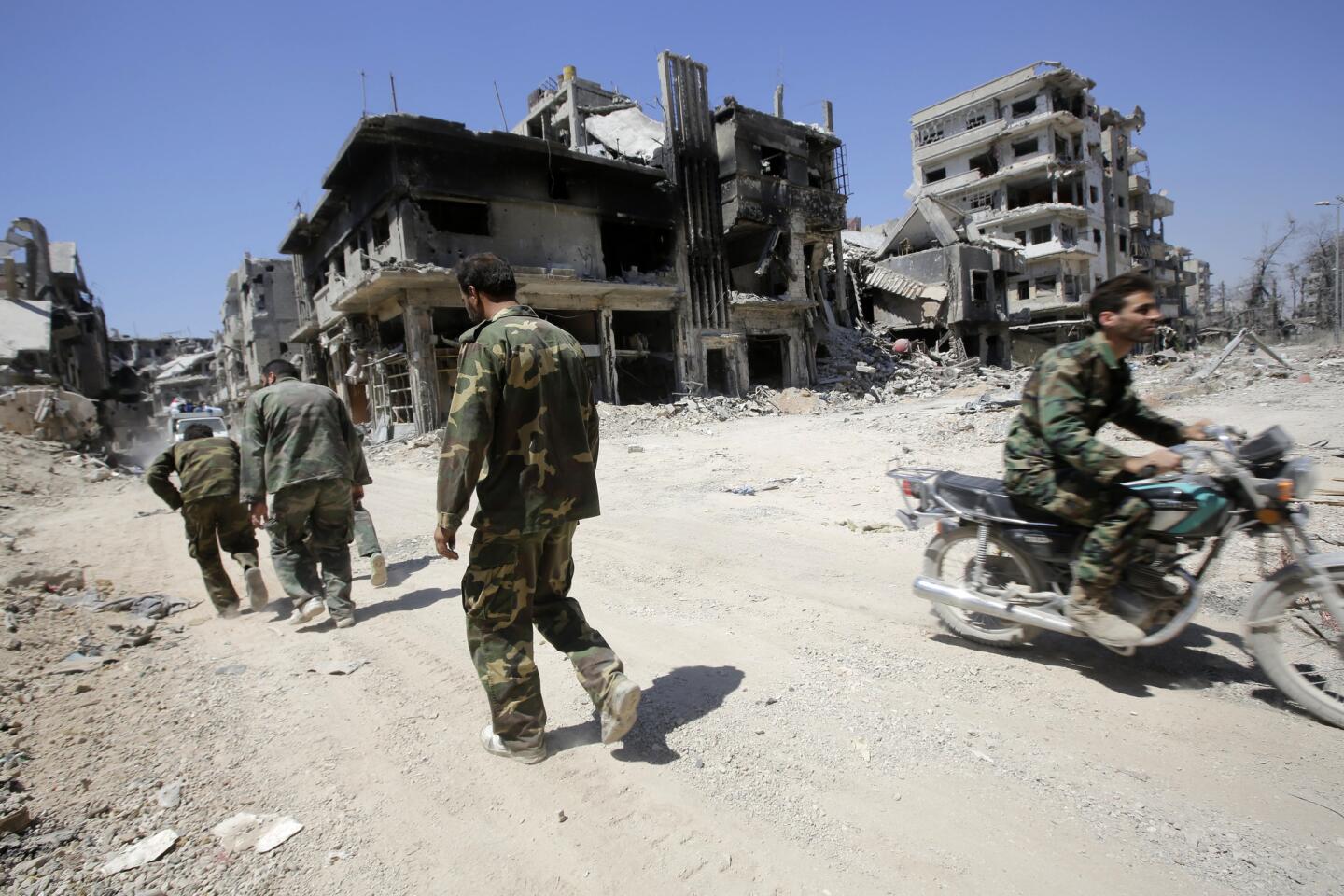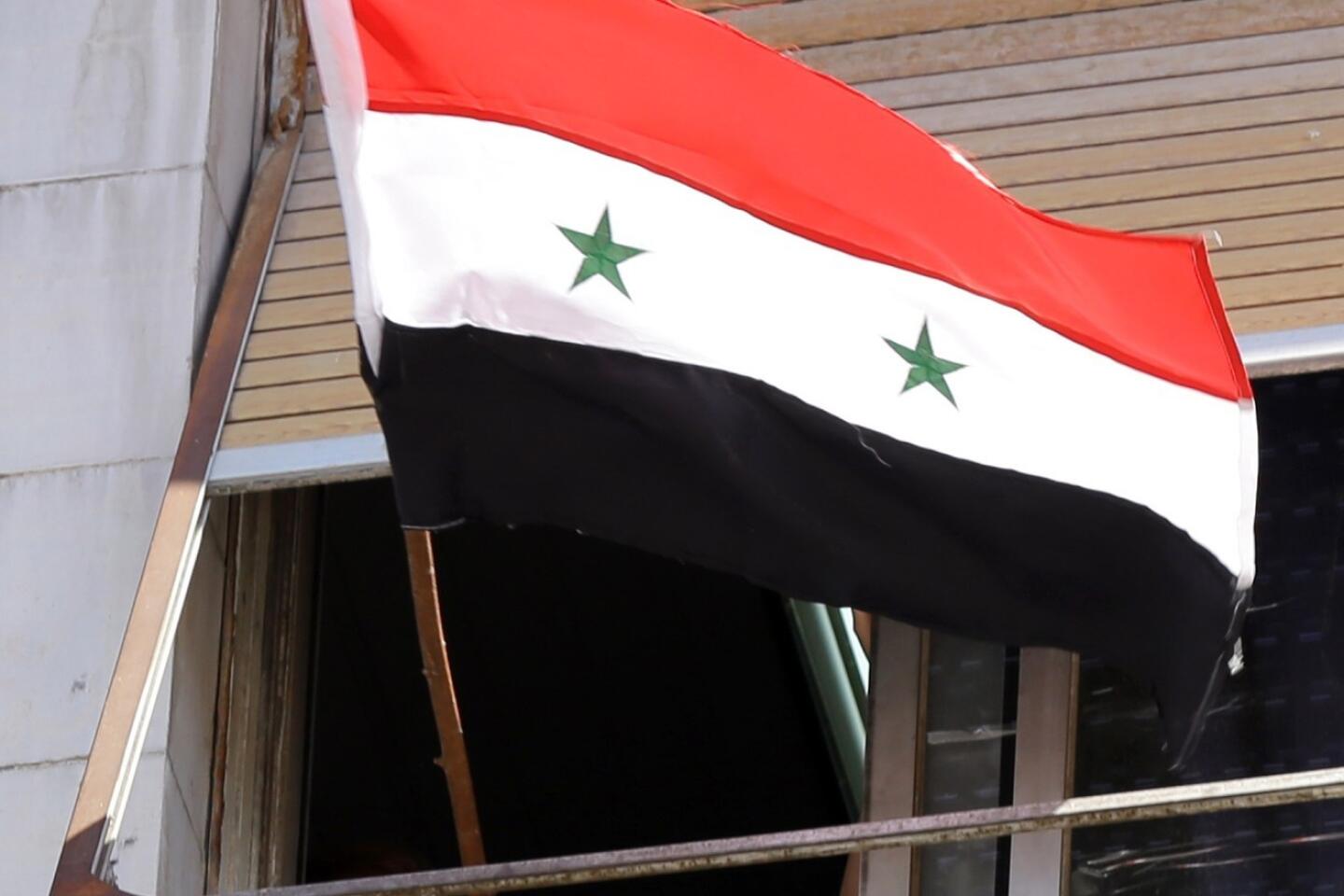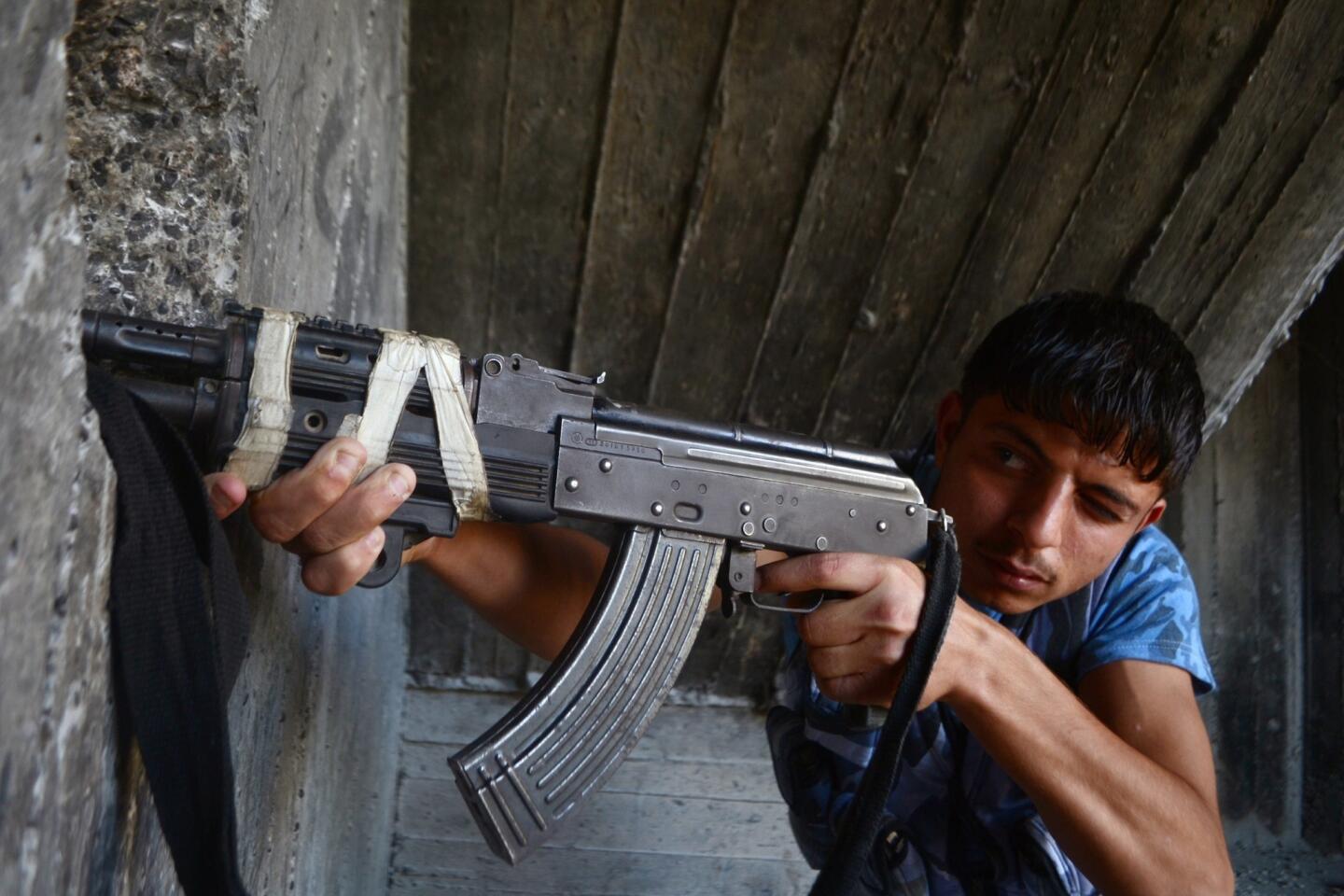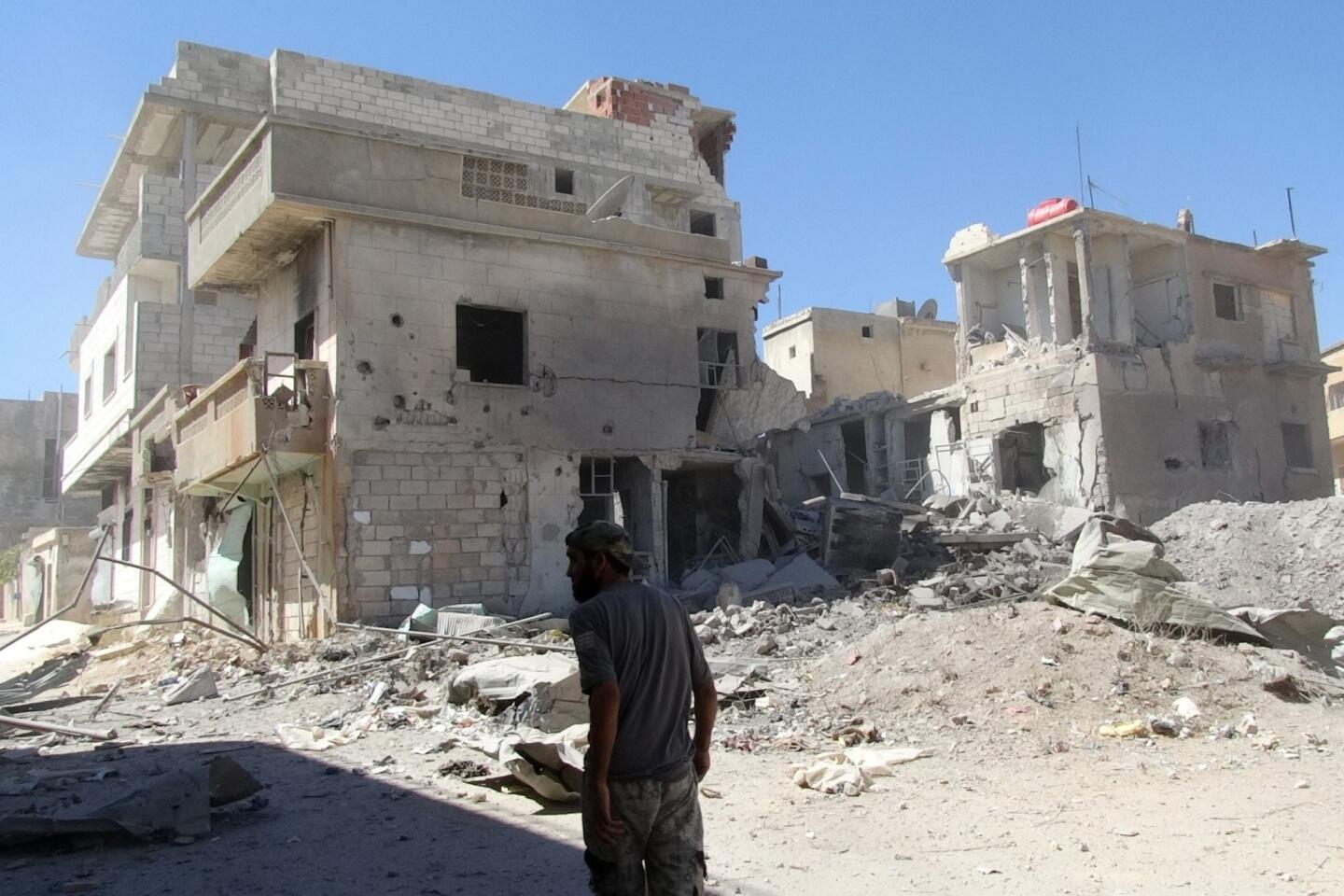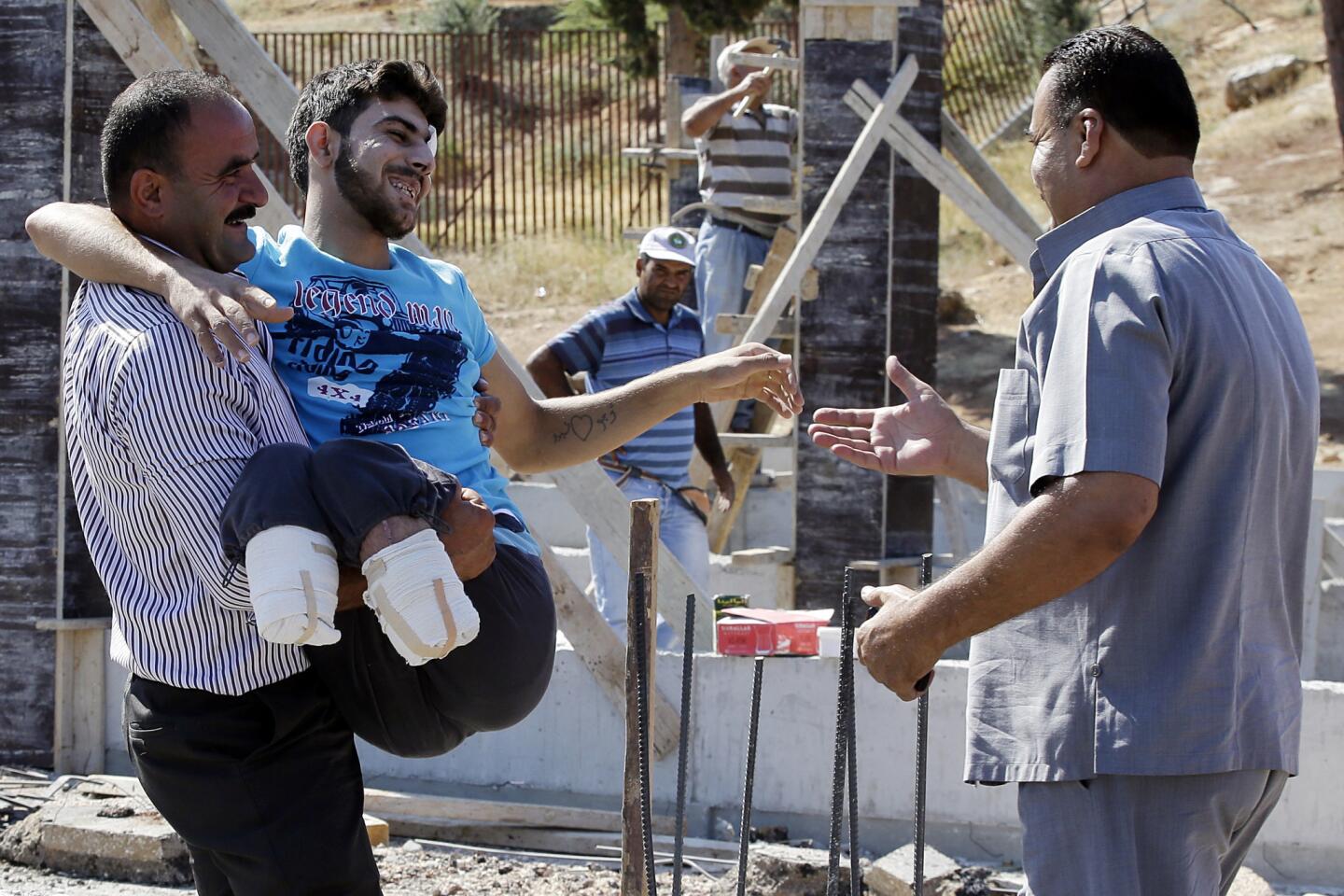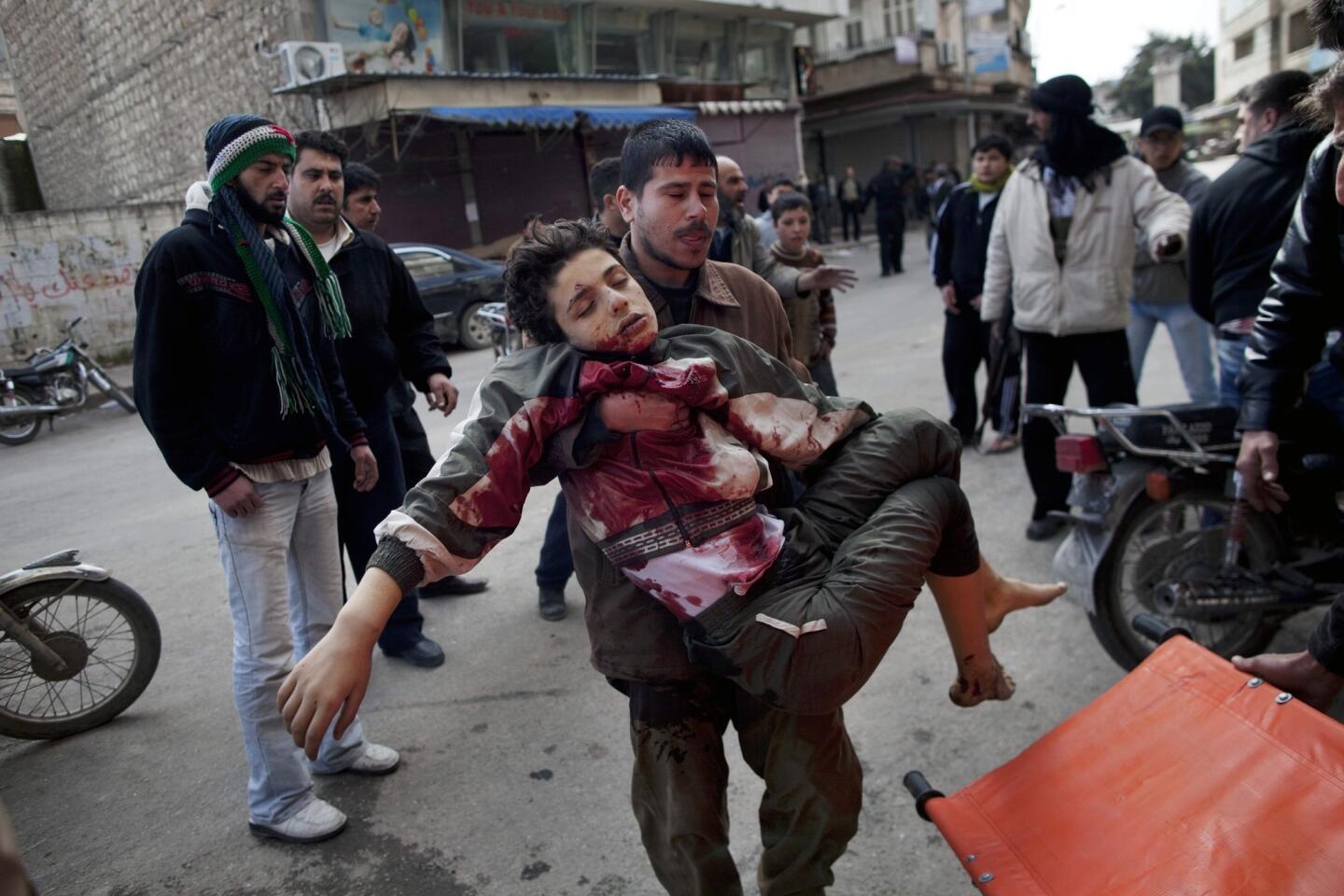Syria submits ‘initial disclosure’ of chemical weapons
WASHINGTON — The Syrian government submitted an “initial disclosure” of its chemical weapons to international inspectors, officials said Friday, the first step under an ambitious deal that aims to eliminate President Bashar Assad’s illicit poison gas arsenal.
Experts at the Organization for the Prohibition of Chemical Weapons in The Hague began translating the document from Arabic and reviewing its contents, but organization officials released few details.
It thus wasn’t clear whether Syria’s disclosure met the terms of last week’s U.S.-Russian agreement, which called for Assad to submit by Saturday “a comprehensive listing, including names, types and quantities of its chemical weapons agents, types of munitions and location and form of storage, production and research and development facilities.”
An official with the disarmament organization, the implementation arm for the Chemical Weapons Convention, described the Syrian document as incomplete, telling the Reuters news agency, “We have received part of the verification, and we expect more.”
The Obama administration greeted the development cautiously.
“We’re going to take a look at the document and see what it says,” State Department spokeswoman Marie Harf said. “So I’m not going to say one way or another whether they’ve met their obligations.”
Administration officials signaled this week that they didn’t expect Syria to meet the Saturday deadline, saying they expected only to see “forward momentum” from Assad to indicate he would comply with the disarmament deal.
The United States blames Assad’s military for an Aug. 21 poison gas attack in Damascus suburbs that it says killed more than 1,400 people. Syria maintains that the attack was a “provocation” by rebels intended to persuade the international community to intervene in the 21/2 -year-old civil war.
Syria’s disclosure comes days before world leaders gather at the United Nations General Assembly in New York. The U.N. Security Council is wrestling with the Syrian crisis but so far has not agreed on a resolution, with the United States sharply at odds with Russia over the language of any resolution laying out how Assad is to meet his obligations.
The U.S., Britain and France want a resolution that puts pressure on Syria to comply, perhaps with the threat of military force. Russia has resisted any mention of military action if Syria does not fully surrender its chemical weapons.
Secretary of State John F. Kerry spoke Friday with Russian Foreign Minister Sergei Lavrov and said they discussed “a resolution that is firm and strong within the United Nations. We will continue to work on that.”
Dieter Rothbacher, a former OPCW inspector, said Syria’s initial submission signaled that Assad appeared willing to comply with the deal to relinquish his chemical weapons in exchange for removing the threat of U.S. missile strikes against his forces.
Syria acceded to the Chemical Weapons Convention, an international treaty that bans the production, storage and use of chemical weapons, on Sept. 14. Rothbacher noted that under the treaty’s provisions, Assad technically has until Nov. 14 to hand over a complete inventory of his stockpiles, precursor chemicals, munitions and other elements of the chemical weapons program.
“Syria not only has obligations, they have rights” under the treaty, said Rothbacher, now managing director for Hotzone Solutions, a Dutch-based consulting firm that works on disarmament issues.
Earlier, the OPCW postponed a meeting of its 41-member executive council scheduled for Sunday, during which delegates were expected to endorse the U.S.-Russian plan to put Syria on an accelerated disarmament track.
Under the plan, international inspectors are to begin work in Syria by November and Syria’s entire weapons program, including an estimated 1,100 tons of mustard, sarin and VX gases, would be impounded, removed or destroyed by mid-2014.
The organization gave no reason for the postponement, but experts said uncertainty surrounding the implementation of the ambitious timetable in the middle of Syria’s civil war may have caused the delay.
“There is no agreement on security arrangements for the inspection team and there is a lack of agreement [at the U.N.] on how noncompliance by Syria would be treated,” said Faiza Patel, a former OPCW senior policy officer now at the Brennan Center for Justice at the New York University School of Law.
More to Read
Sign up for Essential California
The most important California stories and recommendations in your inbox every morning.
You may occasionally receive promotional content from the Los Angeles Times.
